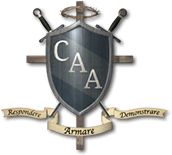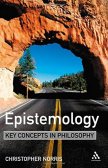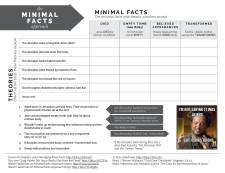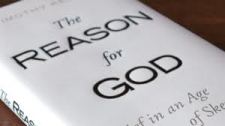Book Discussion of Christopher Norris’ “Epistemology: Key Concepts in Philosophy”
Chapter 2: Realism, Reference and Possible Worlds – Section IV.
Realism: “the claim that there exists a real-world domain of physical objects, events, structures, properties, causal powers and so forth which decide the truth-value of our various statements or theories and which cannot be treated as in any sense dependent on our current-best or even future-best-attainable state of knowledge concerning them.” This is an alethic, not epistemic, account of knowledge.
Events not naturally occurring in nature are still governed by its laws. Cool thought.
Transcendental Realism (TR)-
two senses of “transcendental”–
Sense 1: “pertaining to an order of objective reality and a range of likewise objective truth-values that may always in principle transcend or surpass the limits of human knowledge.”
Sense 2: Kant’s answer to Humean skepticism, a “deduction which accounts for our capacity to acquire such knowledge or to have such experience in terms of certain strictly a priori intuitions or concepts (e.g., those of time, space and causality) that alone make it possible for the mind to impose an intelligible order on the otherwise inchoate flux of sensory impressions.” Kant’s dictum: ‘intuitions without concepts are blind’ while ‘concepts without intuitions are empty’. [Intuitions must be ‘brought under’ concepts.] “Knowledge must confine itself strictly to the limits of phenomenal experience.” The title Critique of Pure Reason epitomizes his point that reason cannot go beyond intuition to the “thing in itself” (to go beyond intuition is to imagine, which is just to reorder previous intuition). We can’t strip the “thing in itself” of our intuitions of it. Norris says Kant does “little to support the alethic realist’s claim that there exists both a mind-independent (objective) reality and also-in consequence of that-a great range of to us unknown (perhaps unknowable) truths.” He also says Kant’s attempt to “explain how the manifold of sensuous intuitions can be somehow ‘brought under’ concepts of understanding” is “problematical”.
“Transcendental Realism breaks the hold of those dilemmas”-see sense 1, and refer to ‘convergent realism’ of last section. “This makes it transcendental in the Kantian sense of deriving from thought about the very possibility of scientific knowledge and progress in general but also in the non-Kantian realist sense of allowing us to know-not merely ‘think’-how such claims can be warranted or justified.”
Critical realism “allows for an adequately complex or ‘stratified’ account of the relationship between subject and object, knower and known.” Avoids dualism and other errors. If the errors were true, “no belief is ‘immune from revision’ since even certain axioms of classical deductive logic-like bivalence and excluded middle-might ultimately have to be abandoned under pressure from conflicting empirical evidence, e.g., quantum phenomena such as superposition or wave/particle dualism. From a TR standpoint these post-logical-empiricist developments should be seen as so many symptoms of the deepening crisis of mainstream analytic philosophy of science rather than as pointing a hopeful way forward from the various problems bequeathed by Kant.” So scrap all that for the “dialectical exchange between theory, observation and experimental practice” of transcendental realism, which rejects the skeptical either/or as a false dilemma, embracing both (1) that every well-formed (truth-apt) statement has its truth-value fixed quite apart from our best knowledge concerning it, and (2) that veridical knowledge is yet within our cognitive grasp-or perhaps ideal limit-through various well-tried methods of enquiry. There is a human role in (2) (manifestation) but not in (1) (reality)-the situation is not a dualism (thing-in-itself/intuitions), but stratified (ontology/epistemology)-pardon if that last part didn’t quite “get it”. [Sort of reminds me of how it is argued that good-evil is not a duality-that, instead, evil is the privation of good.] This “complex, dialectical and stratified version of realism [was] developed by Roy Bhaskar and others.” This involves distinguishing between “the orders of contingent (‘might-have-been-otherwise’) fact, laws of nature which apply (necessarily so) to our own world and all others that physically resemble it, and ‘transworld necessary’ truths-such as those of logic and mathematics-which cannot be conceived as failing to apply in any possible world.”
Norris (an “actualist”) uses the word “actualize” in the sense that we actualize events not occurring in nature (but which are governed by its laws) (as opposed to actualizing one of Lewis’ possible/real worlds). I should mention the thought that keeps popping up about Lewis’ ideas is the phrase “a real possibility”. But that just means “viable option”. Options are merely concepts…abstractions… The “real” world is “actual”-which includes abstractions, but is not itself an abstraction. Mathematics are an abstraction of the mechanics of the real/actual-‘course that’s just a guess. Mathematics that do not explain (refer to) the real/actual-are like options we never “actualized”.
Anyway, to wrap it all up, a realist response to a skeptical confusion of ontology and epistemology is “to be found in a combination of modal realism with inference to the best (causal or counterfactual-supporting) explanation and a transcendental argument from the conditions of possibility for our knowledge of the growth of science.”









